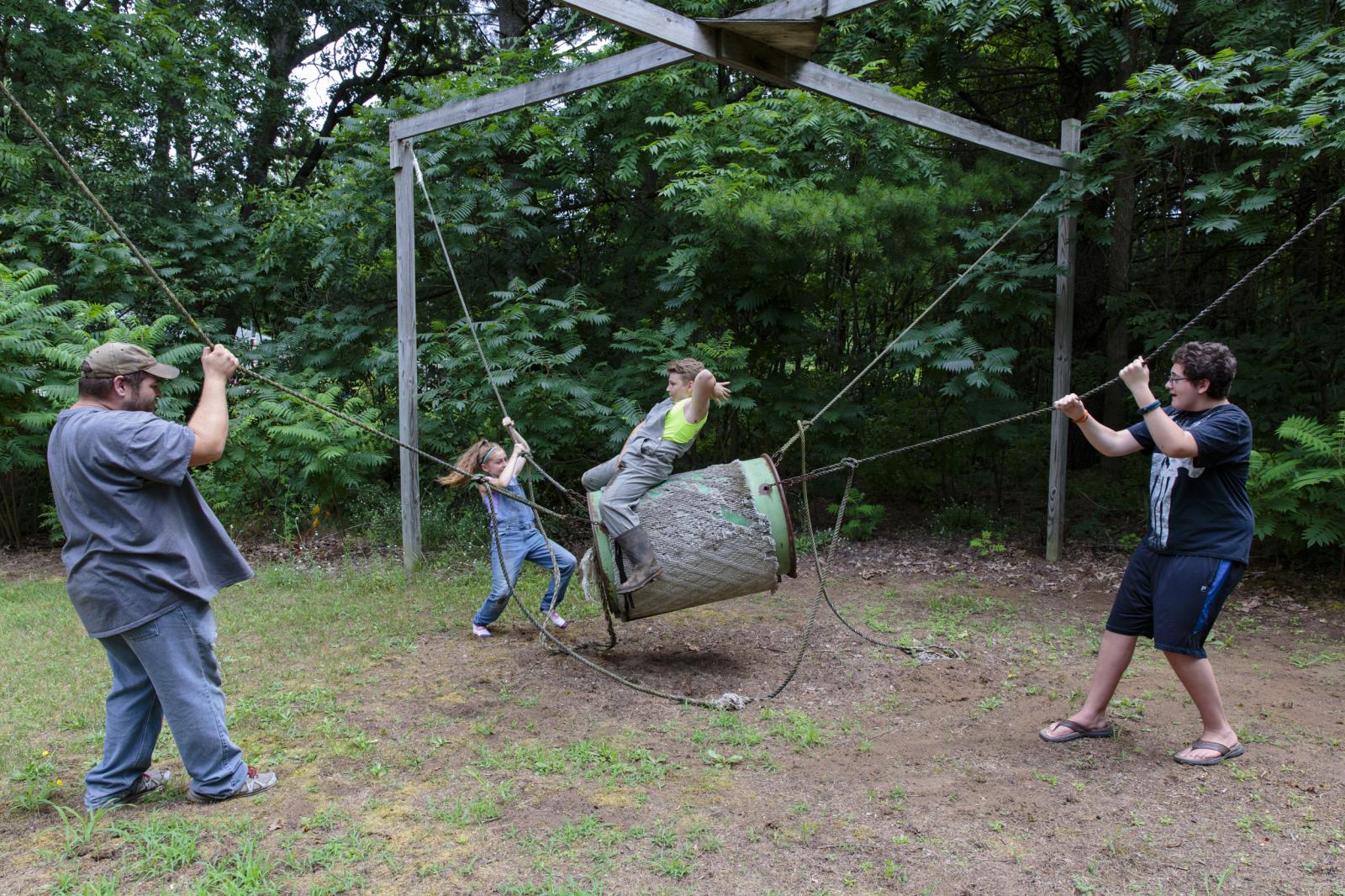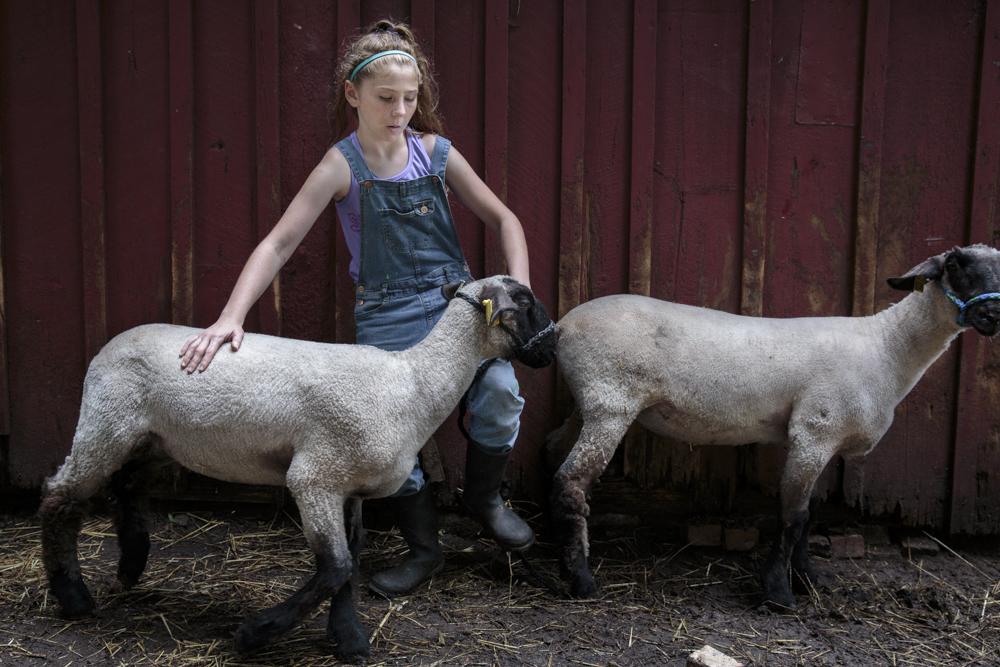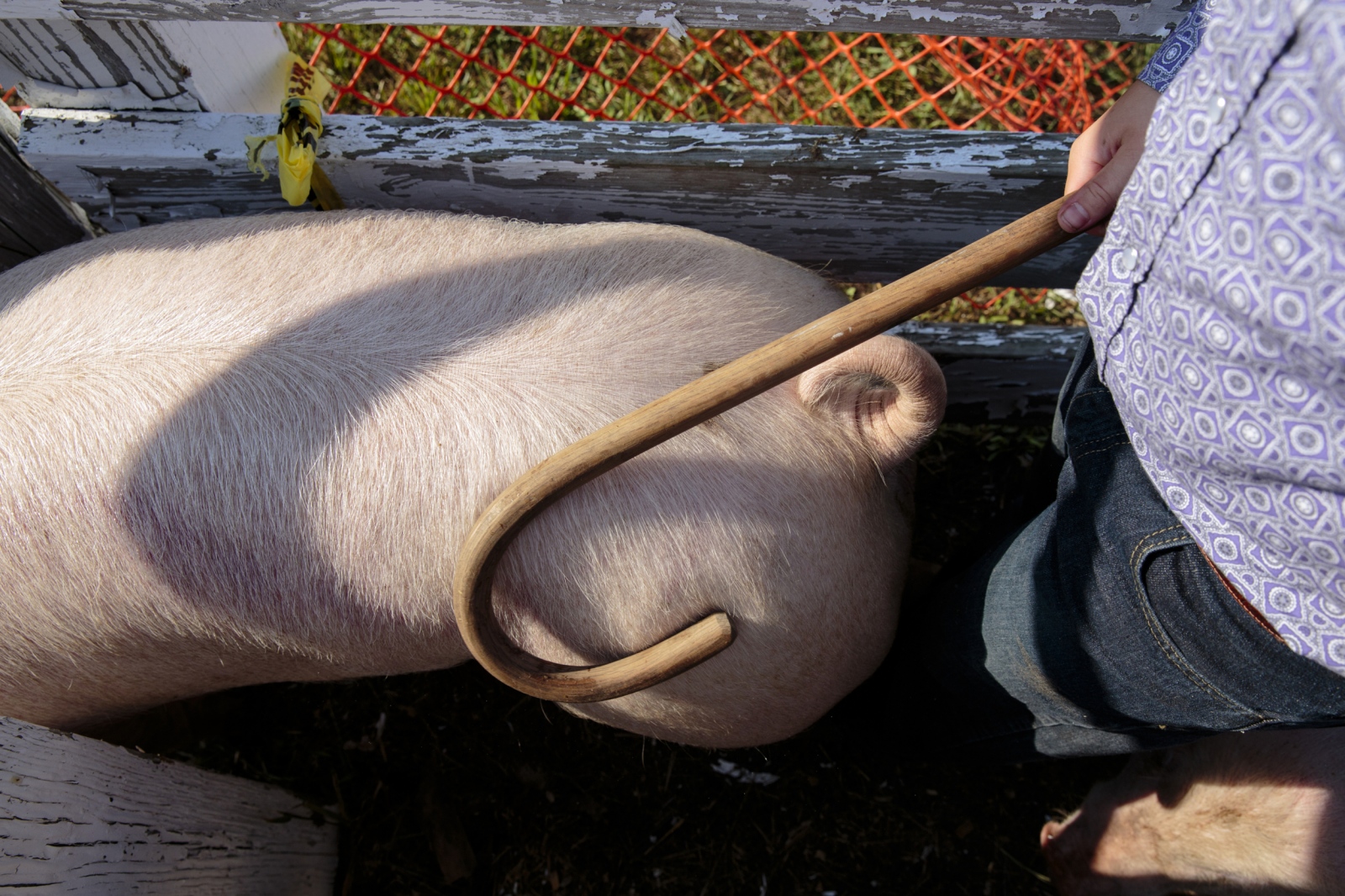Private Story
Back to the Land
Over a hundred people came to the swine show, including Harkin’s Father Chad and sister Mackenzie, who was waiting for her sheep show later that day. During the show, Ace got nervous, squealing, wandering and bumping into other hogs. The 12-year-old tried to take control of the hog with his cane, but he fell on the hay-covered arena.
“It’s ok. It’s ok,” Harkin whispered to Ace while petting him. He got back up, brushed off the hay from his blue jeans and continued the show.
This was what his father, Chad Bartlett, hoped for when he left behind a city life to create an environment for his children to learn skills and lessons beyond the life of an urban city.
Harkin, 12, and his sister Mackenzie Maka, 10, live with their mother Meghan Gallegos and their grandparents in Allendale, about 45 minutes south from Chad’s residence in Twin Lake.
Since April, the siblings visited their father’s house every other weekend and worked together to raise market animals to show and sell at the county fair. Chad covered the initial start-up costs to buy the animals but left the siblings responsible for the animals’ upbringing and marketing.
It is the second year in 4-H for Harkin, who has raised two hogs, Ace and Blizt. Mackenzie jumped onboard as well this year to raise two sheep, Gunter and Rosita, which are named after characters in the movie Sing.
At the fair, Mackenzie placed second overall in the beginner’s division, and won third in notebooks. Harkin didn’t place in the competition, but received honorable mention for his sportsmanship.
Trading city life for life on the farm
Three years ago, Chad and his wife Renee moved out of an apartment complex in Grand Rapids into a two-story house in Twin Lake that came with a hundred-year-old barn and a bucking barrel on a patch of grassland. Chad said he felt lucky when he found the 12 acres of land, because he needed enough space to create an environment where Harkin and Mackenzie could participate in a 4-H program.
The siblings' mother Meghan said she was initially skeptical, but her mind changed once she noticed her children becoming more responsible through raising the animals and managing finances on their own.
“At home, we have a dog and two cats as well. But they are very prompt on those animals and the house chores,” Meghan said. “They learned a sense of responsibility. They’ve grown up a lot with having to open bank accounts and managing money for the animals.”
In the beginning, Harkin was attracted to the idea of making money by raising the market animals.
“But in the end, I just took all that out of the picture and decided I was going to do it, because I thought it would be fun,” Harkin said.
The challenges
During the weekdays, everything falls onto Chad’s shoulders.
He said his biggest challenge is juggling his 50-hour-per-week trucking job and taking care of the animals by himself when the siblings are at their mother's in Allendale.
“It’s a struggle because when I need them there, sometimes they can’t be there,” Chad said. “So a lot of times, I do things on my own. My wife does help, but with the little baby at the house, she can’t devote all of her attention to give me a hand.”
Mackenzie has her own dilemma; Harkin's effort to help her was too involved.
"I know that I have to try to do it on my own,” Mackenzie said. “If he did it all for me, then I’ll just expect that I want him to do it.”
The value of life
Chad feels the effort farmers make to produce the food consumers buy from the store is not common knowledge to young people.
“What I hope the kids get out of it is a sense of responsibility,” Chad said.
“Hopefully, they can learn to be organized and learn the sense of pride in raising something that is going to benefit. They see that they earn cash from doing so, and the pride of knowing that it’s something that they accomplished on their own.”
“When I say life, I mean the value of it. These kids understand that there’s value in a life. When something dies, it doesn’t come back. The animals are only here for a few months, and then they are processed into product that nourishes us. So, I think it’s important that they understand that.”
















